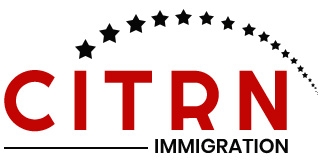
Who Can Sponsor Refugees?
Who Can Sponsor Refugees?
It is for this reason that Canada is worldwide known for the humane approach in resettling refugees and in allowing them to be sponsored by private citizens, organizations, and communities. The process of sponsoring refugees is a collective effort to help escape vulnerable people, their families, from very dangerous situations to build new lives in a safe and welcoming environment.
But who, exactly, can sponsor refugees in Canada? Let's walk through the various types of sponsors and how they play a role in helping newcomers settle.
1. Sponsorship Agreement Holders (SAHs)
Sponsorship Agreement Holders (SAHs) are organizations with a formal agreement with the Canadian government to sponsor refugees. They may be religious, humanitarian, or community-based organizations; they assume the responsibility for assisting refugees during the resettlement process.
SAHs can submit a sponsorship application individually or ally with smaller groups called Constituent Groups (CGs) that help them. They provide various assistance, such as: financial, housing and accommodation, language, education, and employment support up to 12 months or when the refugee becomes independent.
2. Five-member Groups
A Group of Five is literally when five or more Canadian citizens or permanent residents get together to sponsor one or more refugees. Each member was supposed to be at least 18 years of age and had agreed to share the sponsorship responsibilities for the sponsored refugee in terms of finances and settlement.
This group typically provides the refugee with shelter, food, and clothing for no less than 12 months. Furthermore, emotional and social support is given to help the refugees adjust to life in Canada. The refugee they are sponsoring must have already been given status as a refugee by either the United Nations Refugee Agency (UNHCR) or the foreign state.
3. Community Sponsors
Community Sponsorships: Organizations, associations, or business enterprises may sponsor refugees without having an official agreement with the government of being like SAH. They have the same financial and settlement responsibilities as other sponsors and are expected to demonstrate their capacity to support a refugee or family fully.
Community sponsors must present a realistic settlement plan outlining how the sponsor will help settle the refugee into life in Canada and their basic needs for up to one year.
4. Joint Assistance Sponsorship (JAS)
The Joint Assistance Sponsorship (JAS) category is available for people with special needs, including medical or traumatic conditions, who would require some added impetus to help them fit better into life in Canada. For those in the JAS program, the private sponsor of the Canadian government actually delivers long-term assistance. Even though a portion of the bills is paid for by the government, the private sponsor offers social and emotional support.
This would be an ideal kind of sponsorship for those refugees who would face more challenges living their lives in Canada and thus require more extended help than the normal 12 months.
The sponsorship programs open to every Canadian, groups, and organizations willing to provide a new chance in life to refugees. You may have an established organization, you may form part of a community group, or you may just be a collective of citizens who would want to make a difference; the ability to sponsor refugees is available for you. In this context, providing or offering refuge is not only giving but also contributing to the formation of stronger and more inclusive communities in Canada.
This could be the initial step taken by those who wish to become a sponsor of refugees. You see, the way one goes about doing it is different, and there are a number of options and responsibilities necessary so that the person in need receives safety, stability, and hope for the future.


Looking for safety and a fresh start in Canada?
Explore refugee sponsorship programs and begin your journey to a new life.
Contact us today for support and guidance.

